Tribeca Film Festival 2020: Documentary Short Films
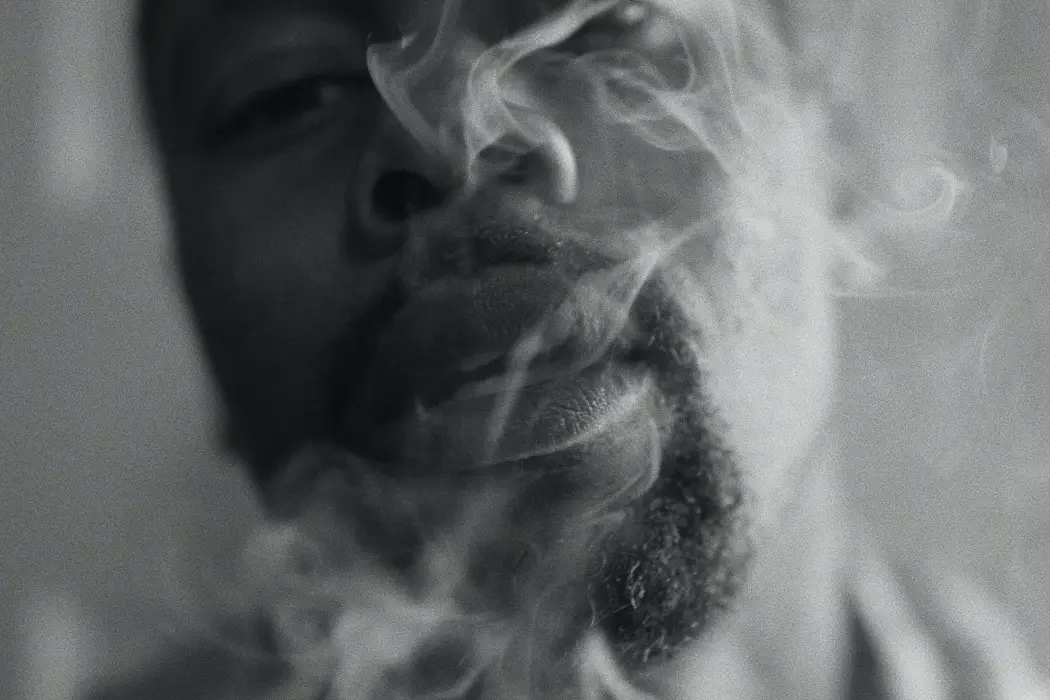
Stephanie Archer is 39 year old film fanatic living in…
The documentary shorts are one of the most vital aspects of the short film medium. Each gives viewers an introduction into issues that for many fall to the wayside, residing in the dark. With the documentary shorts, voices can be heard, injustices brought to light and opportunities for conversations to begin.
Betrayal (Scott Calonico)
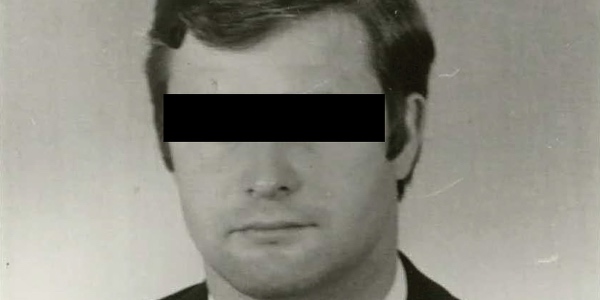
Sometimes you think you know a person. You live and you love them. Yet, what if the person you are so sure of is not who you thought they were? What if that person was a spy? Now compound that with the revelation that not only is he a spy for East Berlin, but he has defected. Sounds like a wild film that you are sure you have heard of, but just can’t remember. For Andy Stiller Hudson, however, this is the story of his father.
Betrayal, from director Scott Calonico, begins with Andy displaying to the camera documents he has saved regarding his father Werner Stiller and his work – the most important being the letter he had written to his mother just before abandoning them and defecting to West Berlin. Andy was only 11 months at the time, his sister much older. While his memories of his father from his childhood are nonexistence, he still lives on in Andy’s memories through the abandonment of his family and his country. While Andy is willing to share the few bits of his father’s life he is willing to embrace, there is so much more to a man whose hidden life and death are just as much of a mystery.
There is definitely intrigue built deep into the core of Betrayal – the definition of which changes throughout the short, layering as his father’s story is told. I found myself wanting to know more, but hesitant as you witness the emotional strain this one man’s life still holds on his son. You witness the need to continue to keep his father and his legacy at arm’s length away, yet also a curiosity that can not be satisfied. There is a lot of historical information and data that could have given this short film a further expansion, with much of the information thrown at audiences in a timely yet rapid speed. I would have liked to have spent more time with this story, learned more of what I could, not just of the man, but of the world surrounding him at the time. There is an evolution of self, one that is deeply rooted in his life as a spy, that I wish had been explored more.
Yet, as the end of the day, you realize this is not a short film about a man who left his family, career and country. This is the story of a young man and his journey to discover the man who left, the man who betrayed him. It is the story of breaking down our own walls to understand that which is most uncomfortable for us. While the entire short speaks of his father, when everything is completed, this is a story of understanding and discovery.
Echos in the Arctic (Andy Maser, Tahria Sheather and Paul Nicklen)
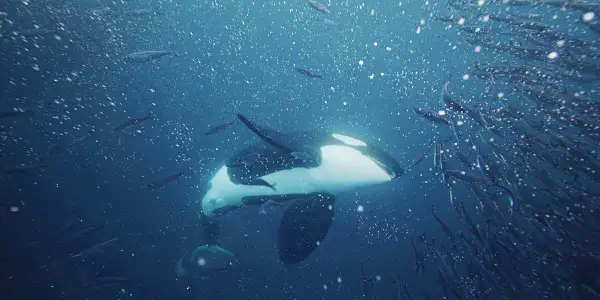
The preservation of our environment is as vital as any issue that comes across the table. As people around the world strive to protect the wildlife around them, consumerism and consumption continue to threaten. Echos in the Arctic brings viewers to Norway where the fight rages to maintain the herring habitat, one that provides lush fishing for the community and is the central feeding ground for some of the earth’s most majestic creatures – the whale.
Quiet and meditative, Echos in the Arctic lets the Norwegian Arctic environment speak for itself. The mountains, the water and the communities below the surface are all captured by the skilled technics of National Geographic photographers and filmmakers. The Lofoten area of Norway is faced with potential devastation as oil companies want to enter and search for natural resources. Yet searching for oil requires loud noises through explosive means – all of which will devastate the complex and fragile ecosystem.
To help prevent this exploration for oil, conservationists in Norway are hoping to use the footage and photographs of the region – especially the whales that culminate in record numbers there – to showcase the delicate ballet that goes on beneath the surface. There is an appreciation of the environment and the creatures that live beneath the surface that to many is a mystery. Though, as it is proven all to often, seeing is believing. A happy ending to the short film reveals that oil exploration has been prevented and the area preserved. Though with one win, you must look onto the next, a campaign for permanent protection already begun.
Mr. Somebody (Brian Wertheim)
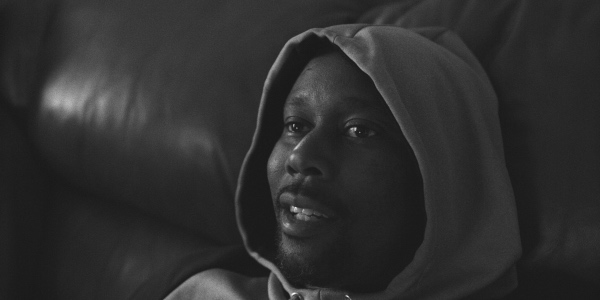
Mr. Somebody opens to two boys wrestling outside their home – the sound of an ice cream truck playing in the background. There is contrast between what the boys are saying to one another as they fight and the innocence of childhood that the music represents. It is a powerful and impactful opening – not only foreshadowing a film, but presenting the focus within the first few seconds.
“I did not choose the gang. I never grew up and said this is what I wanna do. I was taught this,” Jerome “Bam” Blackburn says, his voice narrating as the camera captures his home, the notoriously violent Watts neighborhood of Los Angeles. Bam, has been out of jail for three years – the longest he has been free in nearly two years.
With his current release, Bam reflects on his childhood, on his life in the gang and on his neighborhood. “You can’t take the lion out of the zoo and throw it into the jungle, he gotta survive like a lion.” While much of what has happened in his life is through circumstance and survival, he does not only reflect on himself but those around him. When you only have bread and jam for dinner, he points out that an interview isn’t going to put a meal on the table that night. Rather, selling on the corner is more of a sure thing.
This was a lifestyle he was born into, one that they were all born into. He never chose gang life, but was rather born into it. And while he has the perspective that it shouldn’t be glorified, that’s how you become somebody at Watts – glorifying the number of people you have shot and how long you have spent in the pen, even just going to prison itself. It is a harsh and eyeopening environment, filmed in black and white, stripping away of any distractions, mimicking the short itself: this is how it is, black and white.
While “his childhood stopped at Bugs Bunny,” this is not the life he wishes for his children. He does not want their innocence stolen as his was. His biggest worry, as he looks back on the life he has become tired of, is his fear of dying. Not for himself, but without leaving something for his kids. He sees what is around him, and the unending cycle of violence and trauma, and wants more for his kids and wants them to be alright.
He wants to see change, to be called Mr. Somebody – not for his gang related activities but for the accomplishments every day average citizens are able to achieve. Sadly, he lives in a jungle requiring survival, and by the time the short finishes, it is revealed Bam was booked in September 2019. Mr. Somebody is an eyeopening examination into the lives of those living in Watts, and the urgent need not for incarceration, but for help. One of the shorts I was most anticipating delivers, in more ways than I could have possibly imagined. If you have a chance to see Mr. Somebody, do it.
Tā Moko: Behind the Tattooed Face (Mick Andrews and David Atkinson)
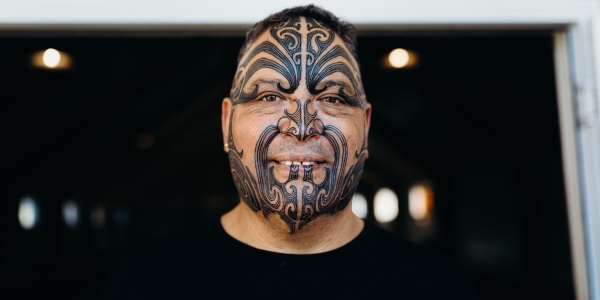
Earlier this year for SXSW, I had the opportunity to screen Drunk Bus, which introduced viewers to the enigmatic actor Pineapple Tangaroa. While his tattoos are briefly mentioned within the film, it is clear that they are not just tattoos but a part of himself and his culture – a symbol that he wears with pride. While Drunk Bus was a a fictional coming-of-age story, I found that I wanted to know more about the culture behind the tattoos that Pineapple Tangaroa proudly wore. Enter Tā Moko: Behind the Tattooed Face Man.
Tā moko is the permanent marking or “tattoo” as traditionally practiced by Māori, the indigenous people of New Zealand. While the tradition was almost rendered extinct through colonization, it is finding a resurgence in the culture, many doing what they can to keep it alive. Bernard and Sapphire are the latest to embrace the tradition, becoming living symbols of the Maori communities and a sign of the healing their community is experiencing.
There is a sense of unity and joy as the community culminates to show their support, many commenting that the last time they were all together was for a funeral. Here, they all share in renewal, in strength. For the actions of one speak for the community. It is inspiring to hear from Bernard and Sapphire, there interviews conducted before they receive their tattoos, the camera capturing their journey to completion. They are a “living face” for themselves, their people, their culture and their future. As Sapphire explains, she is not wary or nervous about people staring at her once she has received her tattoos. Rather she welcomes it and hopes that it can be the start of conversation.
With their “living faces” in the world, they can be the change they want to see for their community. Through their visual showcase they can help to reintroduce not only traditions, but themselves in their true form to the world.
Tall Tales With True Queens (Kristina Budelis and Leandro Badalotti)
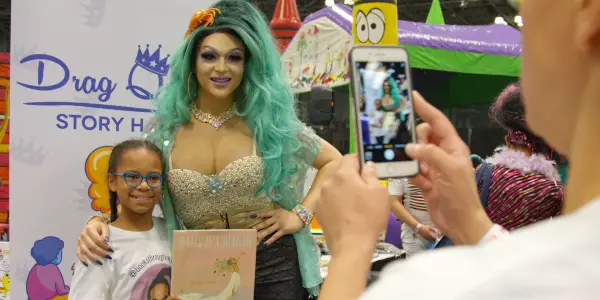
I love Drag Queens. They are vivacious and sassy, and seem to experience a freedom of self that I can only dream to achieve. There is a truthfulness in the look they choose to put out into the world, and a self confidence experienced by few. Combine that with a library and the impressionable youth, and you may have just painted yourself a picture of what the world could one day look like – acceptance. Enter Drag Queen Story Hour.
Hate and discrimination is not something we are born with, but rather something we are taught. Our parents, family members and society all shape how we will begin to look at the world. Babies do not see color, nor do they see gender. Acceptance is ingrained, children welcoming almost anything into their lives, trusting off all who cross their path. With this in mind, it is okay that children learn people are different, but most importantly that it is okay to be different.
Drag Time Story Hour introduces children to a different life style. Though it is not a lifestyle they know to be different, it just is. Drag Queens read them children’s book stories, all while interacting with the children. There is nothing in the room that makes them any different than another story time reader, and the children accept them all the same. It was interesting to see the amount of parents embracing the opportunity to diversify their child’s exposure and acceptance. There is even a moment when a set of parents expressed their difficulty with accepting, citing they do not want that for their children, introducing the awareness and progression of our time and generations.
While drag queens are typically associated with adult entertainment, it is a pleasure to see the box of conformity once again broken, label removed, and re-categorized. It is heartwarming to see the children interact and converse, many fascinated by the dresses they wear and the color of their hair, each drag queen returning the engagement in full. Yet, where there is elation in seeing all this, there is also sadness.
While many have embraced Drag Queen Story Hour, others look to bring a swift end. Protesters outside call for things to stay as they are supposed to be, to stop polluting the minds of our impressionable youth. Death threats and hate greet not only the drag queens, but also the parents, and subsequently the children, who choose to participate. This behavior is expected, yet always just as disheartening.
Yet, as there are those who wish to stop all progression, there are those always willing to embrace it, to show the next generation that it is okay to be different, to be creative, to be yourself.
Tangled Roots (Samantha Knowles)
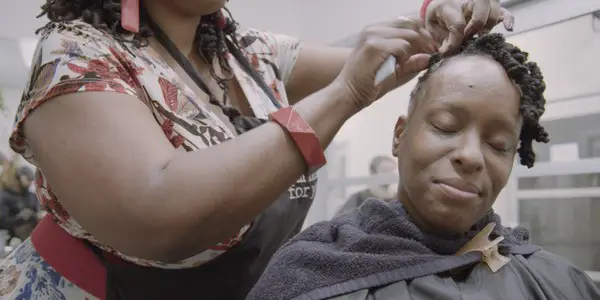
When Tangled Roots, from director Samantha Knowles, began, I wasn’t sold on the premise. A Kentucky State Representative fighting to ban hair discrimination did not resonate, myself instantly calling to mind items of legislature that seemed more urgent than hair. However, I must admit when I am wrong, and this is one of them. The freedom to wear your hair as you choose, whether it be in a school or professional environment, should be yours and yours alone. While I was not originally sold, Tangled Roots may be one of the most important short films of the 2020 Tribeca Film Festival.
Why are we policing children’s hair, specifically the hair of minorities? Why is fashion-forward regarded as unprofessional? Why is natural hair deemed wrong? Unfortunately, as of May 2020, only 6 states in the United States have protection for natural hair. The other 44 states can dictate exactly how you look, whether in school or at a job, and there is nothing you can do to say otherwise. The only option is to conform – seemingly creating uniformity and erasing identity.
Annika Scott, state representative for Kentucky, feels otherwise. After witnessing her daughter discriminated against for her natural hair, seeing how it has been for her professional career and hearing the discrimination of others at their professions, Scott has made the attempt to get a bill passed that would ban hair discrimination for the state of Kentucky. Called Attica’s Bill, audiences journey with Scott as she tries to acquire cosigners, rally support and give strength to those fighting. Though with each civil rights battle that has come before her, the fight is an uphill battle, the fight to reach the top at times overwhelming and seemingly impossible.
Watching Tangled Roots, there is an unintended tension that begins to build, February 2020 activating the countdown for her to obtain a hearing before the end of the legislative year. She has three months to obtain a hearing or her bill is dead. Knowing that CoVid-19 is looming, there is a sadness in knowing that her chances have been made all the more difficult due to the pending epidemic. While it is never mentioned, you can not help yourself from wondering if the outcome might have been different had CoVid-19 not reached its peak during her fight.
While Scott does not achieve her hearing, there is a resilience that remains, a determination to not give up. She announces that she will be trying again next year, and I hope this short film helps to get the word out for her. While many may think “it’s just hair”, it is about more than hair. It is about allowing identity to shine no matter your race or gender. It is about the violation of rights, and the need to correct the past for the sake of the future.
Undocumented Lawyer (Zach Ingrasci and Chris Temple)
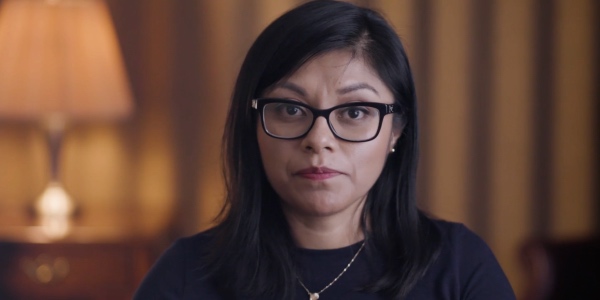
As the immigration crisis wages on, you have to wonder who is at the center of the crisis. Is it a country perceiving an invasion? Or is it individuals without a voice looking for sanctuary? For Lizabeth Mateo, it is the latter. Becoming the first undocumented lawyer to pass the bar in California, Mateo hopes to give help to those looking for sanctuary, running from the violence of their home country. As she believes, there is not enough governmental representation of undocumented immigrants in the US, something that needs to change.
While I thought this was going to be a short specifically about Mateo and her accomplishments, it focused on one in particular, displaying how far she can reach. One of her clients, Edith, has been living under sanctuary in a local church for the last year. Historically, ICE will not arrest people in houses of worship. Edith needs a private bill to retract her deportation order, one the city can start by passing a resolution. While Mateo is limited legally in her options, she can be the face for Edith, going out into the city and government facilities to rally for support and speak on her behalf. She can get Edith’s story out to the American people.
Columbus City, where Edith as claimed her sanctuary, is supposed to be a sanctuary city, yet the first attempt to have a resolution passed failed. Secretly meeting with others like herself, Edith and Mateo organize ways to get their story and the stories of others out. That by garnering support locally, they can tie their stories together and bring it to a national level.
While they eventually succeed, it’s a battle won, but the war is still raging. After 17 months, the city passes the resolution for Edith, paving the way for her permanent stay. However, with this success comes a potential blow as Mateo and her family go head to head with ICE, proceedings started to have them deported.
It is important to continue to make these stories heard, to keep the issues in the spotlight. While some may sacrifice their standings for others, each time support is rallied, it is made clear that this is not an issue that will go quietly into the good night. That at the end of the day, there will always be someone standing, ready to fight.
USA vs Scott (Isabel Castro and Ora DeKornfeld)
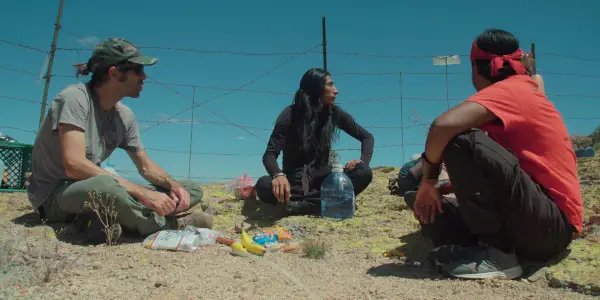
Immigration is a hot subject, especially throughout the film industry. Yet, as we examine the immigration crisis and the devastation immigration laws can cause, it is interesting to take a moment to look at how this crisis affects not only immigrants but the citizens of the country they are immigrating to. Scott Warren is one such person. A humanitarian, he found himself at the heart of the immigration crisis, felony charges brought against him for harboring and giving water to immigrants crossing the border. If convicted, he could spend the next 20 years in federal prison.
USA vs. Scott, from directors Isabel Castro and Ora DeKornfeld, opens to a room of citizens of the town of Ajo discussing their concerns and questions regarding immigration and those who would make the treacherous journey to cross the border. It is a safe space where they can relay their questions or feelings, both pleasant and not so pleasant. Scott mediates the discussion, welcoming each and every question. With this opening discussion, it creates a framework for the short, an idea of the mentality of its citizens regarding immigration issues, but it also creates a perspective on the thoughts of immigration vs the thoughts behind just being a human.
As Scott faces his upcoming trial, he continues to journey into the desert, leaving water and food in various places for those crossing the desert to find. While the US government destroys and dumps any water they find, they will not be deterred. In 1994, the government stepped into Ajo to control illegal immigration in the area. Blocking off central access, immigrants were left to cross the desert, an almost certain death the government believed would deter those from crossing. But it didn’t. Many would rather die in the desert than continue the lives they are leading. Just the chance to make it to the US pushes them forward.
With this lack of deterrent, the government has now set its sights on its own citizens. As Warren faces incarceration for “being human” and giving humanitarian aid to those in need, the town too assesses their actions. Many admitted that they have aided someone they saw on the side of the road, given them water – there was no question of who they were or where they can from, just help. Now, for fear of retribution, they will continue to drive on. This ties the beginning of the short, that while individuals have questions, concerns, and point of views regarding immigration, they also would not turn their backs on a stranger that needs help.
It is a heartbreaking moment to see a government begin to force the hand of its citizens, to calculate who a person might be before extending a helping hand. Humanitarian aid is not a crime – no matter who the aid is going to. Warren thankfully was able to buy himself time, his trial ending in a hung jury. As he awaits a new trial, he continues to provide the help so many need, while giving the time to listen to the citizens around him. Where he continues to fight, so too must we. A government that uses its citizens as expendable pawns is no freedom.
To find out more about Tribeca’s 2020 program click here.
Does content like this matter to you?
Become a Member and support film journalism. Unlock access to all of Film Inquiry`s great articles. Join a community of like-minded readers who are passionate about cinema - get access to our private members Network, give back to independent filmmakers, and more.













